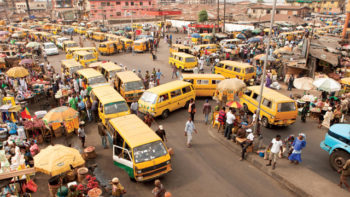
The International Monetary Fund (IMF) projects that Nigeria’s economy will grow at a faster pace than the South African economy in the 2018 fiscal year.
According to its World Economic Outlook (WEO) for July 2017, the IMF said Nigeria will grow at 1.9 percent in 2018, while South Africa will only climb by 1.2 percent.
In 2016, the Nigerian economy contracted by 1.6 percent, while South Africa expanded by 0.3 percent. Projections for 2017 put South Africa’s growth at 1 percent, while Nigeria is expected to muster just 0.8 percent.
The Bretton Woods institution — which held global growth projections at 3.5 percent in 2017 and 3.6 percent in 2018 — said growth was marked down in South Africa, due to elevated political uncertainty.
“In Sub-Saharan Africa, the outlook remains challenging. Growth is projected to rise in 2017 and 2018, but will barely return to positive territory in per capita terms this year for the region as a whole—and would remain negative for about a third of the countries in the region,” the IMF said via WEO.
“The slight upward revision to 2017 growth relative to the April 2017 WEO forecast reflects a modest upgrading of growth prospects for South Africa, which is experiencing a bumper crop due to better rainfall and an increase in mining output prompted by a moderate rebound in commodity prices.
“However, the outlook for South Africa remains difficult, with elevated political uncertainty and weak consumer and business confidence, and the country’s growth forecast was consequently marked down for 2018.”
IMF also added that global growth will be aided by growths in the US and the UK, who are projected to grow at 2.1 percent and 1.5 percent respectively.
“China’s growth projections have also been revised up (6.7%), reflecting a strong first quarter of 2017 and expectations of continued fiscal support.
“Inflation in advanced economies remains subdued and generally below targets; it has also been declining in several emerging economies, such as Brazil, India, and Russia.”
Copyright Ships & Ports Ltd. Permission to use quotations from this article is granted subject to appropriate credit given to www.shipsandports.com.ng as the source.